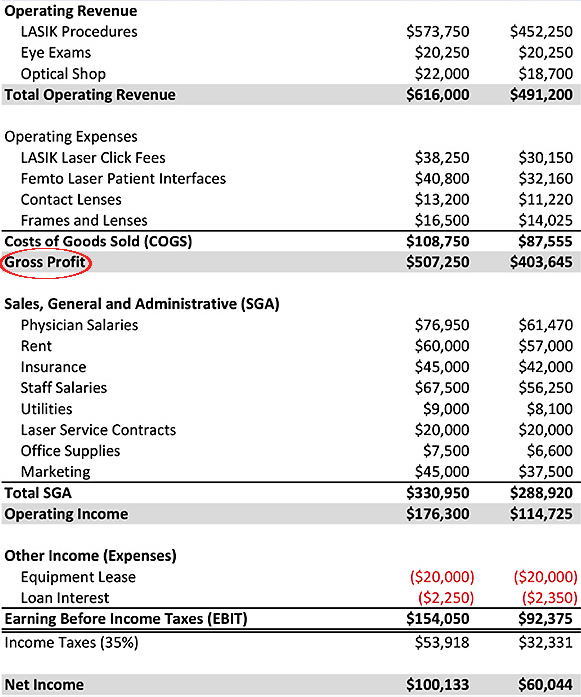Research: Adapting Websites and SEO for AI-Driven Search
The rapid proliferation of artificial intelligence (AI) is ushering in a transformative era for how individuals seek and discover information online.1 This evolution marks a significant departure from traditional keyword-centric search methodologies, giving rise to sophisticated AI-powered search engines that prioritize context and user intent.1 Leading this shift are innovative platforms such as Google’s Gemini, ChatGPT Search, Perplexity AI, and Microsoft Copilot, which leverage advanced algorithms to provide more intuitive and personalized search experiences.3 This integration of AI into search is fundamentally changing how users interact with the digital landscape, demanding a re-evaluation of established website design and search engine optimization (SEO) strategies.1
The advent of AI-driven search necessitates a proactive response from website owners and SEO professionals to maintain online visibility and relevance.3 As AI systems become increasingly adept at providing direct, summarized answers to user queries, the traditional flow of organic traffic to websites may experience a decline.5 This shift underscores the growing importance of Generative Engine Optimization (GEO), an evolving discipline focused on optimizing content for AI-powered search platforms.13
The swift integration of AI into search mechanisms signifies a profound alteration in user behavior, characterized by a growing preference for conversational, context-aware, and personalized methods of information retrieval. This trend compels a necessary adaptation of conventional SEO practices to ensure sustained online presence. Evidence suggests that users are increasingly turning to AI for immediate and tailored answers, indicating a potential contraction in traditional search volumes and highlighting the imperative for a new optimization strategy.1
While AI offers enhanced efficiency and automation in the search process, it is not without its limitations. Issues concerning the accuracy of AI-generated responses, the potential for algorithmic bias, and questions surrounding data privacy represent challenges that both users and developers must address.3 Reports indicate that AI can sometimes produce inaccurate or fabricated information, and concerns have been raised about the data required for personalized results and the transparency of AI algorithms.11 These factors suggest that while AI-powered search offers significant advancements, a nuanced understanding of its capabilities and limitations is essential.
Key Differences Between AI-Driven Search and Traditional Human Search
Traditional search engines have historically relied on matching keywords within a user’s query to the content of web pages.8 These engines employ ranking algorithms that consider factors such as the frequency of keywords, the number and quality of backlinks, and the overall authority of a website to determine the order of search results.9 However, this approach often struggles with interpreting the underlying context and the true intent behind a user’s search, particularly for queries that are not straightforward.11 Despite these limitations, traditional search engines possess remarkable speed and scalability, capable of handling trillions of searches annually and delivering results in fractions of a second.12
In contrast, AI-driven search engines represent a paradigm shift by leveraging Natural Language Processing (NLP) and machine learning models to gain a deeper understanding of user intent and the context of their queries.2 This enables them to move beyond simple keyword matching and engage in semantic search, where the focus is on comprehending the meaning and relationships between words in a query.2 AI-powered search often involves using vector search and embedding models to locate content that is conceptually similar and relevant to the user’s intent, even if the exact keywords are not present.12 This allows AI to effectively handle complex and conversational queries, providing direct, summarized answers rather than a list of links that the user must sift through.1
AI search engines are distinguished by their capacity to interpret the underlying purpose of a search query, moving from mere keyword alignment to a deeper understanding of the user’s needs. This advanced contextual understanding facilitates the delivery of more personalized and tailored responses.8 The ability of AI to discern nuanced queries and adapt to user preferences and search history leads to a more intuitive and satisfactory search experience.12
Furthermore, the interactive nature of AI search is reshaping user behavior, fostering an expectation of immediate, personalized responses and enabling iterative refinement through follow-up questions, thus mimicking human-like dialogue.1 This conversational paradigm contrasts sharply with the often solitary and keyword-driven interactions of traditional search engines.12
Table 1: Traditional versus AI-Driven Search
| Feature | Traditional Search | AI-Driven Search |
| Query Processing | Keyword Matching | Natural Language Understanding |
| Intent Understanding | Limited | Advanced |
| Contextual Analysis | Basic | Comprehensive |
| Result Format | List of Links | Direct Answers/Summaries |
| Personalization | Limited | High |
| Conversational Ability | Low | High |
| Computational Cost | Lower | Higher |
SEO Lessons from the Past and the Dispelling of Old Techniques
Historically, SEO practitioners employed a range of techniques to improve website rankings in search engine results pages (SERPs). However, the evolution of search engine algorithms, particularly with the integration of AI, has rendered many of these tactics obsolete or even detrimental.22
One such outdated technique is keyword stuffing, which involved excessively repeating keywords within website content and meta tags in an attempt to manipulate search engine rankings.45 Similarly, a high keyword density, where a significant percentage of the text consisted of target keywords, was once considered effective.45 However, search engines now recognize these practices as providing poor user experience and may penalize websites that engage in them.45 AI algorithms prioritize contextual understanding and semantic relevance, making keyword stuffing ineffective and potentially harmful to user experience and rankings.20
Over-optimizing anchor text, both for internal and external links, was another common tactic.45 While including relevant keywords in anchor text can be beneficial, excessive use of exact match anchor text is now viewed as unnatural and potentially spammy.45
Creating multiple pages targeting slight variations of the same keyword was also a prevalent strategy in the past.46 The rationale was that different keyword combinations might yield different search results. However, with advancements in semantic understanding, search engines like Google are now adept at recognizing synonyms and searches with similar intent, making this tactic redundant and potentially leading to thin content issues.46
The use of exact match domains (EMDs), where the domain name precisely matched a target keyword, was once thought to provide a ranking advantage.45 While EMDs might still offer a slight benefit in some cases, they are no longer a significant ranking factor, and focusing on building a reputable brand with a user-friendly domain name is more crucial.45
Manipulative link-building schemes, such as link farms, paid links, and private blog networks (PBNs), were employed to artificially inflate a website’s authority.45 Search engine algorithms have become sophisticated at detecting these unnatural link patterns and penalize participating websites.47 Similarly, practices like submitting articles to article directories and using article spinning software to generate low-quality, duplicate content are no longer effective and can harm a website’s reputation.49 Creating duplicate content across multiple pages or domains is also penalized by search engines.6
Techniques such as hiding text (e.g., using white text on a white background) and cloaking (showing different content to search engines than to users) were employed to deceive search engines.52 These black-hat SEO tactics are now strictly prohibited and can result in severe penalties, including de-indexing.52
Creating thin content, which offers little to no value to users, and using doorway pages, which are designed to rank for specific keywords and redirect users to other pages, are also outdated practices that search engines actively discourage.45 Focusing solely on broad keywords without specific intent has become less effective as search engines prioritize more granular and long-tail queries.47 The use of Flash movies on websites is no longer advisable as many browsers and search engines no longer support Flash.45 Finally, engaging in comment spamming to build backlinks is an outdated and ineffective tactic that can negatively impact a website’s reputation.46 Even ignoring mobile optimization, once a future trend, is now a critical error as the majority of online searches occur on mobile devices.49 Over-reliance on exact-match keywords is also becoming less important as AI can understand synonyms and related terms.5
The evolution of search engine algorithms, particularly with the introduction of AI, has rendered many once-effective SEO techniques not only obsolete but potentially damaging to a website’s ranking. These updates, such as Panda, Penguin, and Hummingbird, specifically targeted manipulative practices and emphasized the importance of user experience and content quality.22 The underlying principle is that search engines now prioritize providing users with valuable and relevant information, and AI enhances their ability to discern genuine content from manipulative optimization.2
The shift from a primary focus on keyword density and exact matches to a deeper understanding of user intent and semantic relationships represents a significant paradigm shift in SEO history, directly preceding and shaping the AI-driven search era. Early SEO strategies heavily relied on the strategic placement and repetition of keywords. However, the increasing sophistication of search algorithms, culminating in AI-powered understanding of natural language, has diminished the effectiveness of these tactics. The emphasis now lies on creating content that naturally incorporates relevant terms within a context that addresses the user’s informational needs, a principle that aligns perfectly with how AI search engines process and interpret information.
Table 2: Outdated SEO Techniques and Why They Are No Longer Effective
| Outdated Technique | Why No Longer Effective |
| Keyword Stuffing & High Keyword Density | Penalized by algorithms for poor user experience and unnatural content.45 AI prioritizes contextual understanding.20 |
| Over-Optimizing Anchor Text | Viewed as unnatural and potentially spammy by search engines.45 |
| Multiple Pages for Keyword Variations | Redundant due to search engines’ ability to understand synonyms and similar intent; can lead to thin content issues.46 |
| Exact Match Domains | Less impactful as search engines prioritize quality and relevance.45 |
| Link Farms, Paid Links & PBNs | Devalued by algorithms that recognize manipulative link-building schemes.45 |
| Article Directories & Spinning | Recognized as low-quality, unoriginal content.49 |
| Hidden Text & Cloaking | Strictly prohibited black-hat tactics with severe penalties.52 |
| Thin Content & Doorway Pages | Discouraged as they offer little value to users and can be penalized.45 |
| Broad Keywords Without Specific Intent | Less effective as AI understands specific user intent; long-tail keywords are more valuable.47 |
| Flash Movies | No longer supported by many browsers and search engines.45 |
| Comment Spamming | Ineffective and can negatively impact a website’s reputation.46 |
| Ignoring Mobile Optimization | Critical error as most searches occur on mobile devices.49 |
| Over-Reliance on Exact-Match Keywords | Less important as AI understands synonyms and related terms.5 |
| Low-Quality or Spun Content | Penalized by AI algorithms that prioritize original, valuable content.3 |
| Focusing Primarily on Keyword Density | Losing relevance as AI understands context beyond keyword frequency.45 |
Adapting SEO for the Age of AI
Emerging Techniques for AI SEO
To thrive in the era of AI-driven search, SEO strategies must evolve to incorporate new and emerging techniques. Optimizing for featured snippets and AI answers has become paramount.5 This involves structuring content with clear headings and subheadings to facilitate easy scanning by AI algorithms.5 Utilizing bullet points and short paragraphs can also enhance readability for both AI and human users.5 Placing the most critical information, including concise answers to potential questions, in the initial sentences of a section increases the likelihood of being featured in AI-generated overviews.35 Formatting content in a question-and-answer style directly aligns with how users interact with AI search platforms.13 Employing lists and tables to organize data can further improve the chances of content being selected for snippets.5
Implementing structured data, also known as schema markup, is another crucial technique for AI SEO.5 By using schema markup such as FAQ, How-To, Product, and Article schema, website owners can provide search engines with explicit information about the content on their pages, enabling AI to better understand and categorize it.5 Utilizing JSON-LD, a format for structured data, is recommended for its ease of implementation.41 Structured data enhances the likelihood of appearing in rich results, featured snippets, and AI-generated summaries.20
The concept of E-E-A-T (Experience, Expertise, Authoritativeness, Trustworthiness) has gained significant importance in the context of AI search.3 AI algorithms are designed to prioritize high-quality, accurate, and trustworthy content.4 Demonstrating expertise through author bios, credentials, and case studies can signal authority to AI systems.5 Citing reputable sources and linking to authoritative websites further enhances trustworthiness.5 Ensuring transparency, fact-checking information, and maintaining an updated website with fresh content are also crucial aspects of building E-E-A-T.5
Creating comprehensive, in-depth content that directly addresses user intent is essential for success in AI search.5 This involves covering all relevant facets of a topic and providing thorough answers to potential queries.20 Anticipating and addressing follow-up questions, mirroring the conversational nature of AI search, can also be beneficial.7 Using natural language and adopting a conversational tone aligns with how users interact with AI platforms.8
Optimizing for voice search is no longer a peripheral consideration but a vital component of AI SEO.4 This involves incorporating natural language queries and long-tail keywords that reflect how people speak.3 Given that voice searches often include location-based queries, optimizing for local SEO is also crucial.7 Structuring content to directly answer spoken questions enhances its visibility in voice search results.21
Core SEO Principles That Remain Timeless
Despite the transformative impact of AI, several core SEO principles remain timeless and essential for online success. Creating high-quality, valuable content that resonates authentically with users will always be fundamental.4 Content that provides genuine value and addresses user needs is crucial for attracting and retaining visitors, regardless of how they find the website.
User experience (UX) continues to be a critical ranking factor.5 Ensuring a seamless and positive experience for website visitors, including fast loading times, mobile responsiveness, and intuitive navigation, is essential for both human users and AI evaluation of website quality.
Website accessibility and crawlability are also enduring principles.6 Search engines, including AI-powered ones, need to be able to easily access, crawl, and index website content. This requires a clear site structure, proper use of HTML tags, and the implementation of a sitemap to guide crawlers.
Technical SEO fundamentals remain vital.8 Aspects such as page speed optimization, ensuring mobile-friendliness, implementing website security (HTTPS), and correctly configuring robots.txt and sitemaps are crucial for both traditional and AI-driven search.
Relevance and alignment with user intent will always be core to SEO.3 Content must directly address the user’s search query and provide relevant information to be considered valuable by both traditional and AI search engines.
Building authority and trustworthiness remains a crucial aspect of SEO.5 This involves creating a reputable website, earning high-quality backlinks from authoritative sources, and demonstrating expertise in the relevant subject matter.
Websites must prioritize a user-centric approach in their design and content strategies.5 This entails creating content that genuinely resonates with the target audience, addressing their needs and providing valuable information.8 Clear and intuitive website navigation is essential to ensure that users can easily find the information they seek.6 Furthermore, websites must ensure fast page loading times and be fully responsive across various mobile devices, as mobile browsing continues to dominate.5
A clear and logical content structure is paramount for AI and human comprehension.5 Utilizing natural language headers that mirror conversational search queries can improve content discoverability.32 Maintaining a well-defined hierarchical structure using appropriate H1-H6 tags helps AI understand the organization and importance of different sections.32 Breaking down long-form content into digestible chunks, such as shorter paragraphs and bulleted lists, enhances readability for both AI and human users.21
Semantic accuracy and the provision of comprehensive information are increasingly important.5 Websites should aim to cover topics in depth, providing thorough and well-researched answers to user queries.20 Using clear and concise language, while avoiding unnecessary jargon, ensures that the content is accessible to a broader audience and easily processed by AI.5 Incorporating summaries and key takeaways at the beginning of content can also aid AI in quickly understanding the main points.31
The future of web presence in the age of AI hinges on the ability to optimize for both the sophisticated algorithms that power search and the human users who rely on these tools to find information. This dual optimization necessitates a focus on clarity, logical structure, and a deep commitment to providing valuable and user-centric content.
Conclusion: Embracing the AI Revolution in Search
The integration of artificial intelligence into search engines marks a profound shift in how individuals discover and interact with information online.1 This report has highlighted the fundamental differences between AI-driven search and traditional human search, emphasizing the move towards natural language understanding, contextual analysis, and personalized results.2
The historical evolution of SEO has provided valuable lessons, with many once-effective techniques now considered outdated or harmful.45 The rise of AI necessitates a strategic adaptation of SEO practices, focusing on emerging techniques such as optimizing for featured snippets and voice search, while moving away from practices like keyword stuffing and ignoring user experience.5 However, the core principles of SEO, including the creation of high-quality content, a focus on user experience, and ensuring technical soundness, remain as relevant as ever.3
The AI revolution in search demands a fundamental shift in SEO strategy, moving from a focus on algorithmic manipulation to a genuine commitment to user-centricity and the creation of high-quality, trustworthy content that caters to both human and artificial intelligence.42 Continuous learning and adaptation will be crucial for SEO professionals and website owners to navigate the evolving landscape of AI-driven search and ensure sustained online visibility and relevance in this dynamic environment.1
References
- AI has changed search behavior – What’s up for the future? – Ikius, accessed March 26, 2025, https://ikius.com/blog/search-behavior-has-changed
- A Study on Information Search Behavior Using AI-Powered Engines: Evidence From Chatbots on Online Shopping Platforms – Sage Journals, accessed March 26, 2025, https://journals.sagepub.com/doi/full/10.1177/21582440241300007
- AI and Search Engines: How SEO Strategies Are Evolving – Act!, accessed March 26, 2025, https://www.act.com/blog/ai-and-seo-why-smbs-should-care-about-the-new-era-of-search-engines/
- Is SEO Dead in the Age of AI? – Big Drop Inc, accessed March 26, 2025, https://www.bigdropinc.com/blog/is-seo-dead-in-the-age-of-ai/
- The Future of SEO with AI: How Search is Changing in 2025 – Ripe Media, accessed March 26, 2025, https://www.ripemedia.com/the-future-of-seo-with-ai-how-search-is-changing-in-2025/
- The Death of SEO? How AI is Shaping The Future of SEO – Opace Digital Agency, accessed March 26, 2025, https://opace.agency/blog/death-of-seo-ai-future-of-seo
- How AI Is Transforming The Future Of SEO – Forbes, accessed March 26, 2025, https://www.forbes.com/councils/forbesagencycouncil/2025/01/03/how-ai-is-transforming-the-future-of-seo/
- Traditional Search vs. AI-Powered Search Explained – Prerender, accessed March 26, 2025, https://prerender.io/blog/traditional-search-vs-ai-powered-search-explained/
- AI Search Engines Vs Traditional Search Engines: Which One is the Better? – Dorik AI, accessed March 26, 2025, https://dorik.com/blog/ai-search-engines-vs-traditional-search-engines
- Old School Search Engine vs AI Search Engine: Key Insights – On Purpose Media, accessed March 26, 2025, https://onpurposemedia.ca/old-school-search-engine-vs-ai-search-engine/
- Traditional vs. AI-Driven Search Engines: Pros, Cons, and How Your Destination Can Leverage Both – Herrmann Global, accessed March 26, 2025, https://herrmannglobal.com/2024/12/06/traditional-vs-ai-driven-search-engines/
- Generative AI vs. Traditional Search: Technical Differences – Matthew Edgar, accessed March 26, 2025, https://www.matthewedgar.net/generative-ai-vs-traditional-search-technical-differences/
- Has the much heralded AI Search made traditional SEO obsolete? – Hospitality Net, accessed March 26, 2025, https://www.hospitalitynet.org/viewpoint/125000241.html
- Impact of AI on Search Discovery & Engagement – Overdrive Interactive, accessed March 26, 2025, https://www.ovrdrv.com/blog/impact-of-ai-on-search-discovery-engagement/
- Transforming Search: The Impact of AI on User Behavior – Boomcycle Digital Marketing, accessed March 26, 2025, https://boomcycle.com/blog/transforming-search-the-impact-of-ai-on-user-behavior/
- How AI Search is Changing Marketing and User Behaviour – Optiminder.com, accessed March 26, 2025, https://optiminder.com/how-ai-search-is-changing-marketing-and-user-behaviour/
- The Real Impact of AI on Search Behavior | by Will Scott | Jan, 2025 | Medium, accessed March 26, 2025, https://medium.com/@willscott_seo/the-real-impact-of-ai-on-search-behavior-b78b5eba4b8a
- SEO in the Age of AI Search Engines – Mad Genius Agency, accessed March 26, 2025, https://madg.com/2025/01/07/seo-in-the-age-of-ai-search-engines/
- Understanding AI Search Engines: Facts All SEOs Should Know – seoClarity, accessed March 26, 2025, https://www.seoclarity.net/blog/understanding-ai-search-engines
- How to Rank in AI Search Results: 9 Effective Strategies – Xponent21, accessed March 26, 2025, https://xponent21.com/insights/optimize-content-rank-in-ai-search-results/
- AI Search Optimization Guide: Everything You Need to Know – ToTheWeb, accessed March 26, 2025, https://totheweb.com/blog/ai-search-optimization-guide/
- The Evolution of SEO: From Keywords to AI-Driven Search Optimization – yellowHEAD, accessed March 26, 2025, https://www.yellowhead.com/blog/the-evolution-of-seo/
- Traditional vs. AI-Powered Search Engines: Navigating the Future of Search | YourStory, accessed March 26, 2025, https://yourstory.com/2024/11/traditional-vs-ai-powered-search-engines-navigating-future-search
- Exploring the Differences: Search vs Generative AI – ClearPeople, accessed March 26, 2025, https://www.clearpeople.com/blog/exploring-the-differences-search-vs-generative-ai
- How AI is Reshaping Search Intent and User Behavior – SocialChamps, accessed March 26, 2025, https://socialchamps.com/topic/how-ai-is-reshaping-search-intent-and-user-behavior/
- AI-Powered Search: How AI is Personalizing Search Intent – W3era.com, accessed March 26, 2025, https://www.w3era.com/blog/future-of-search-how-ai-personalizing-search-intent/
- AI and Search Intent: Decoding User Behaviors – Creaitor.ai, accessed March 26, 2025, https://www.creaitor.ai/blog/how-ai-understands-search-intent
- Understanding AI Search, and how to update your content to ‘rank’ high, accessed March 26, 2025, https://www.thinklikeapublisher.com/understanding-ai-search-and-how-to-update-your-content-to-rank-high/
- Semantic Search and User Intent: How AI is Shaping the Future of SEO, accessed March 26, 2025, https://rizzoyoung.com/content/semantic-search-and-user-intent-ai-shaping-future-seo
- How to Enhance Search Engine Rankings Using AI – Screpy, accessed March 26, 2025, https://screpy.com/how-to-enhance-search-engine-rankings-using-ai/
- How to Optimize Content for Generative Search Engines – Intero Digital, accessed March 26, 2025, https://www.interodigital.com/blog/how-to-optimize-content-for-generative-search-engines/
- How to optimize your website for both AI agents and humans: The new frontier of SEO, accessed March 26, 2025, https://magnet.co/articles/how-to-optimize-your-website-for-both-ai-agents-and-humans-the-new-frontier-of-seo
- How to optimize your website content for AI in 2025 | Global Reach Bi-Weekly Blog, accessed March 26, 2025, https://www.globalreach.com/global-reach-media/blog/2024/12/27/how-to-optimize-your-website-content-for-ai-in-2025
- 5 Secret Hacks to Make Your Website AI-Search Proof in 2025 In March 2025 – Pixelcrayons, accessed March 26, 2025, https://www.pixelcrayons.com/blog/digital-marketing/hacks-to-make-your-website-ai-search-proof/
- Optimizing website content to appear in AI Overviews: How to create content that Google will like : r/content_marketing – Reddit, accessed March 26, 2025, https://www.reddit.com/r/content_marketing/comments/1iuo0gb/optimizing_website_content_to_appear_in_ai/
- How to SEO for AI search: mastering AI-powered rankings and search algorithms | OWDT, accessed March 26, 2025, https://owdt.com/insight/how-to-seo-for-ai-search-mastering-ai-powered-rankings-and-search-algorithms/
- The Future of SEO: How AI Is Already Changing Search Engine Optimization – ResearchFDI, accessed March 26, 2025, https://researchfdi.com/future-of-seo-ai/
- AI Agents for Technical SEO: 7 Ways to Transform SEO Using AI – Writesonic, accessed March 26, 2025, https://writesonic.com/blog/ai-agents-for-technical-seo
- How To Optimize SEO In The AI Age – Forbes, accessed March 26, 2025, https://www.forbes.com/councils/forbestechcouncil/2024/11/06/how-to-optimize-seo-in-the-ai-age/
- AI & SEO: How to Prepare in 2025 – Exploding Topics, accessed March 26, 2025, https://explodingtopics.com/blog/ai-in-seo
- AI optimization: How to optimize your content for AI search and agents – Search Engine Land, accessed March 26, 2025, https://searchengineland.com/ai-optimization-how-to-optimize-your-content-for-ai-search-and-agents-451287
- Optimizing for AI search: Why classic SEO principles still apply – Search Engine Land, accessed March 26, 2025, https://searchengineland.com/optimizing-ai-search-classic-seo-principles-452327
- Optimizing for AI Search and Discovery – Reforge, accessed March 26, 2025, https://www.reforge.com/guides/optimizing-for-ai-search-and-discovery
- AI Search Optimization: SEO for Perplexity, ChatGPT and more – Marketing Aid, accessed March 26, 2025, https://www.marketingaid.io/ai-search-optimization/
- Let’s Say Goodbye to These Outdated SEO Techniques in 2023, accessed March 26, 2025, https://www.seoadvantage.com/2023/03/29/outdated-seo-techniques/
- 7 Outdated SEO Tactics to Stop Doing NOW – LocaliQ, accessed March 26, 2025, https://localiq.com/blog/outdated-seo-tactics/
- 5 Signs Your SEO Is Outdated – WebFX, accessed March 26, 2025, https://www.webfx.com/seo/learn/outdated-seo/
- 12 Obsolete SEO Tactics to Avoid in 2024, accessed March 26, 2025, https://www.link-assistant.com/news/outdated-seo-tactics.html
- Outdated SEO Practices That You Should Definitely Avoid – Stan Ventures, accessed March 26, 2025, https://www.stanventures.com/blog/old-school-seo-techniques/
- 8 Old School SEO Practices That Are No Longer Effective – Moz, accessed March 26, 2025, https://moz.com/blog/8-old-school-seo-practices-not-effective-whiteboard-friday
- 8 Top Bad and Outdated SEO Techniques to Avoid, accessed March 26, 2025, https://www.elegantthemes.com/blog/wordpress/bad-outdated-seo-tactics
- Which SEO Techniques Should Be Avoided? – Online Marketing Blog | Flow20, accessed March 26, 2025, https://www.flow20.com/blog/which-seo-techniques-should-be-avoided/
- 11 Bad SEO Practices to Avoid for Better SERP Rankings – Attrock, accessed March 26, 2025, https://attrock.com/blog/bad-seo/
- What Is Black Hat SEO? 9 SEO Tactics To Avoid – Shopify, accessed March 26, 2025, https://www.shopify.com/blog/black-hat-seo
- Black Hat SEO Techniques That Can Destroy Your Search Ranking – Bluehost, accessed March 26, 2025, https://www.bluehost.com/blog/black-hat-seo-techniques-that-can-destroy-your-search-ranking/
- SEO Principles: 10 Fundamentals to Dominate Search Results in 2025 – Ninjapromo, accessed March 26, 2025, https://ninjapromo.io/seo-principles
- SEO Principles: 7 SEO Fundamentals to Help Your Campaign Succeed – WebFX, accessed March 26, 2025, https://www.webfx.com/blog/seo/seo-principles/
- What Elements Are Foundational for SEO with AI | Abstracta, accessed March 26, 2025, https://abstracta.us/blog/ai/what-elements-are-foundational-for-seo-with-ai/
- Traditional SEO vs AI SEO: Which Strategy Wins in 2024? | Content Whale, accessed March 26, 2025, https://content-whale.com/blog/traditional-seo-vs-ai-seo-2024/








